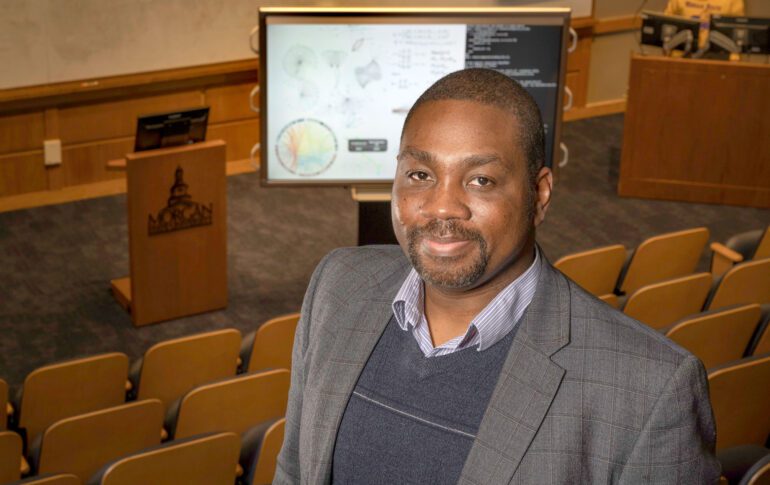TL;DR:
- Morgan State University’s CEAMLS partners with Latimer.ai for an inclusive Large Language Model (LLM).
- The LLM aims to incorporate the cultural and historical perspectives of Black and Brown communities.
- CEAMLS researchers will conduct quality assurance and quality control testing for the model.
- Morgan State students will participate in beta testing, assessing the LLM’s real-world efficacy.
- Latimer.ai stands out by using licensed content and a Retrieval Augmented Generation (“RAG” Model).
- The partnership aims to promote unbiased AI and diversify the digital landscape.
- CEAMLS focuses on equitable AI development and standards, including ethics and societal impacts.
Main AI News:
In a groundbreaking partnership with Latimer.ai, Morgan State University’s Center for Equitable AI and Machine Learning Systems (CEAMLS) is at the forefront of innovation in the realm of artificial intelligence. Their collaborative effort aims to revolutionize the AI landscape by introducing the first racially inclusive Large Language Model (LLM), designed to embrace the rich cultural and historical perspectives of Black and Brown communities. CEAMLS researchers will be conducting meticulous quality assurance and quality control testing to ensure the model’s efficacy and functionality.
Professor Kofi Nyarko, the Director of CEAMLS and a distinguished faculty member at Morgan’s Clarence M. Mitchell, Jr. School of Engineering, expressed the significance of this partnership. He emphasized, “The Center is proud to partner with Latimer as we strive towards a future where AI transcends its traditional boundaries to capture the complex mosaic of African American history and culture. Our collaborative efforts will intensify the pursuit of unbiased AI, ensuring that the digital landscape is as diverse and inclusive as the communities we serve. Through this partnership, we are not just shaping technology but crafting a more inclusive digital narrative for generations to come.”
Beyond the rigorous testing led by CEAMLS, Morgan State students will play a pivotal role in the beta testing phase, gaining access to this groundbreaking LLM. As early adopters, students will have the unique opportunity to assess the AI platform’s performance in real-world scenarios, further solidifying its effectiveness.
John Pasmore, the Founder and CEO of Latimer, also shared his enthusiasm for this milestone, stating, “Latimer represents an AI evolution, a model built to better serve distinct audiences by augmenting the data available to accurately answer queries about the history and culture of Black and Brown audiences.”
Latimer distinguishes itself by utilizing licensed content from reputable sources, including an exclusive partnership with New York Amsterdam News. Their model, known as a Retrieval Augmented Generation (“RAG” Model), combines Latimer-specific data with a foundation model, ensuring responses to queries are both comprehensive and up-to-date. This approach guarantees that Latimer remains a reliable resource for accurate historical information and bias-free interaction.
Pasmore added, “As we build out Latimer, we will enable systems that allow for automation and continue to make the content more reliably free of bias and inaccuracies. Latimer is the first of its kind – a model that looks to ensure the representation of Black and Brown people, now and into the future.”
CEAMLS, established in 2022, is committed to fostering the development, deployment, and verification of socially responsible and equitable AI systems. Their core areas of focus encompass the establishment of formal standards for data preparation, model training, and deployment, all with the aim of promoting equitable AI. The Center also delves into the intersection of philosophy and science, examining the ethics and societal impacts of AI’s widespread application.
Dr. Nyarko, explaining the Center’s mission, said, “Initiatives like the Latimer project speak directly to the type of research and impact CEAMLS seeks in our quest to uproot the inherent bias that can be part of the foundational datasets with AI models in which inclusion and representation are not present in the early stages of development.“
Conclusion:
The partnership between CEAMLS and Latimer.ai represents a significant step toward a more inclusive AI market. By addressing bias and incorporating underrepresented cultural perspectives, they are setting a precedent for the development of AI models that can serve diverse audiences effectively. This collaboration has the potential to reshape the AI landscape and drive greater demand for ethically conscious and culturally inclusive AI technologies.

